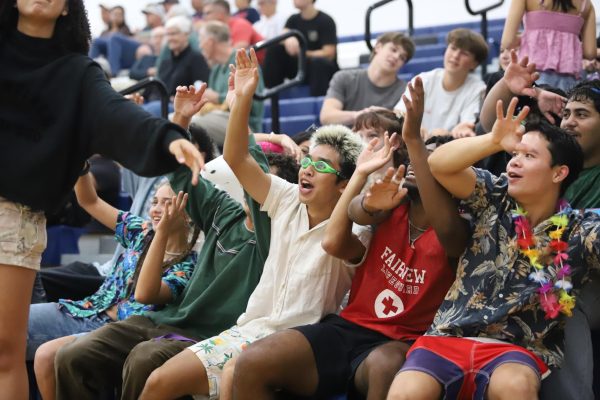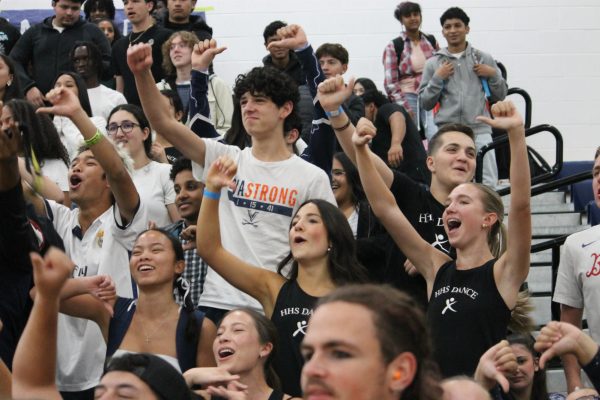Dotas experiences many sides of Hawaii
December 10, 2014
This fall break, with most students staying home or driving a few hours to visit with family or friends, senior Evan Dotas left behind the continental United States on a vacation to Hawaii’s Oahu Island. While there, he sampled local cuisine, snorkeled, and relaxed in paradisic weather.
Dotas removed himself from the arctic tundra of Virginia for exactly seven days, departing the thursday before fall break.
“It was an early graduation trip,” Dotas said. Dotas was accompanied by his father and stepmother during his vacation to the third largest island of Hawaii.
Dotas said that although he liked most things about Oahu, his favorite part of the visit was relaxing in the warm weather and swimming in the ocean, which was conveniently located right behind the hotel he was staying at.
“Everything was really pretty,” he said. Dotas said he made use of the beach often, frequently swimming all day.
One morning, Dotas also hiked up Diamond Head, an old volcanic crater that looms over Oahu.
“I hiked to see the sunrise,” Dotas said. “It was cloudy, but I’d still say it was beautiful.”
Dotas said that he especially enjoyed snorkeling in Hawaii, and that the wildlife was extremely interesting.
“I saw a lot of exotic animals, like the Hawaiian national fish, the humuhumunukunukuāpuaʻa,” Dotas said. “I also went to an aquarium and a zoo and saw cool animals like a seal.”
At the same time many students were eating turkey, Dotas was consuming delicacies like octopus, pink snapper, and mango juice.
“I ordered a few dishes I normally wouldn’t have ordered at home, and they were actually really good; I was surprised,” Dotas said.
One thing Dotas said didn’t surprise him was the weather.
“The weather was always 80 degrees or so, so I spent a lot of time just relaxing on my balcony in my shorts,” Dotas said.
Dotas said that even though his vacation was nice, he couldn’t help but notice signs of America’s socioeconomic inequality in the place visited by over 4.5 million tourists per year.
“You’ve got a lot of poor people and it’s incredibly expensive to live,” Dotas said. “Just driving from the airport to the hotel you could see it.”
According to the US Census Bureau, about 11 percent of Hawaii’s residents live below the poverty line, although the rate is much higher for Native Hawaiians.
“The fakeness was real,” Dotas said. He explained that tourists often have a bastardized view of Hawaii from their resorts, gaining little perspective about actual Hawaiian culture or problems facing islander communities.
“Our tour bus guide was saying [that] everyone says ‘aloha’ to tourists but never at home,” Dotas said. “It was gross.”


















